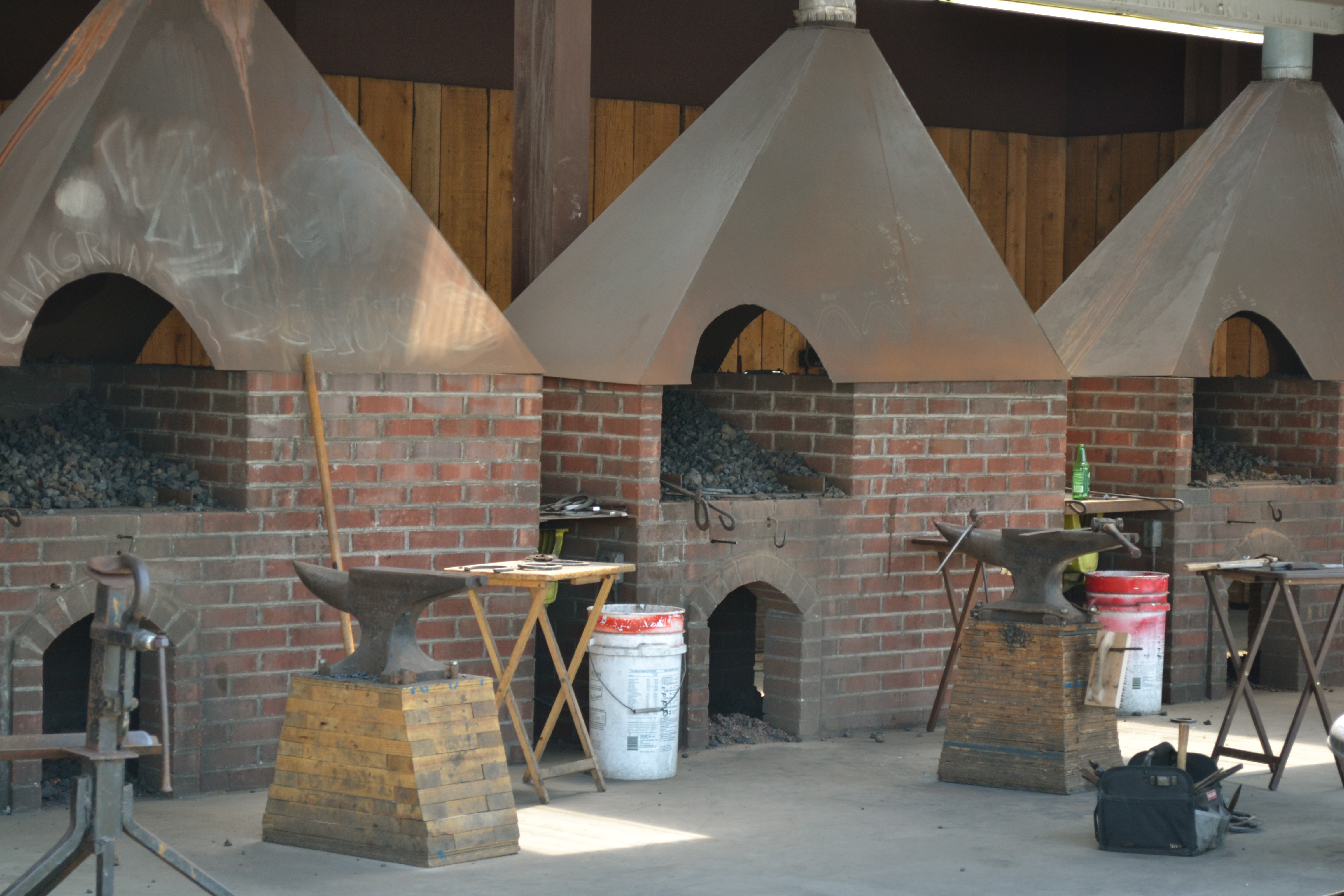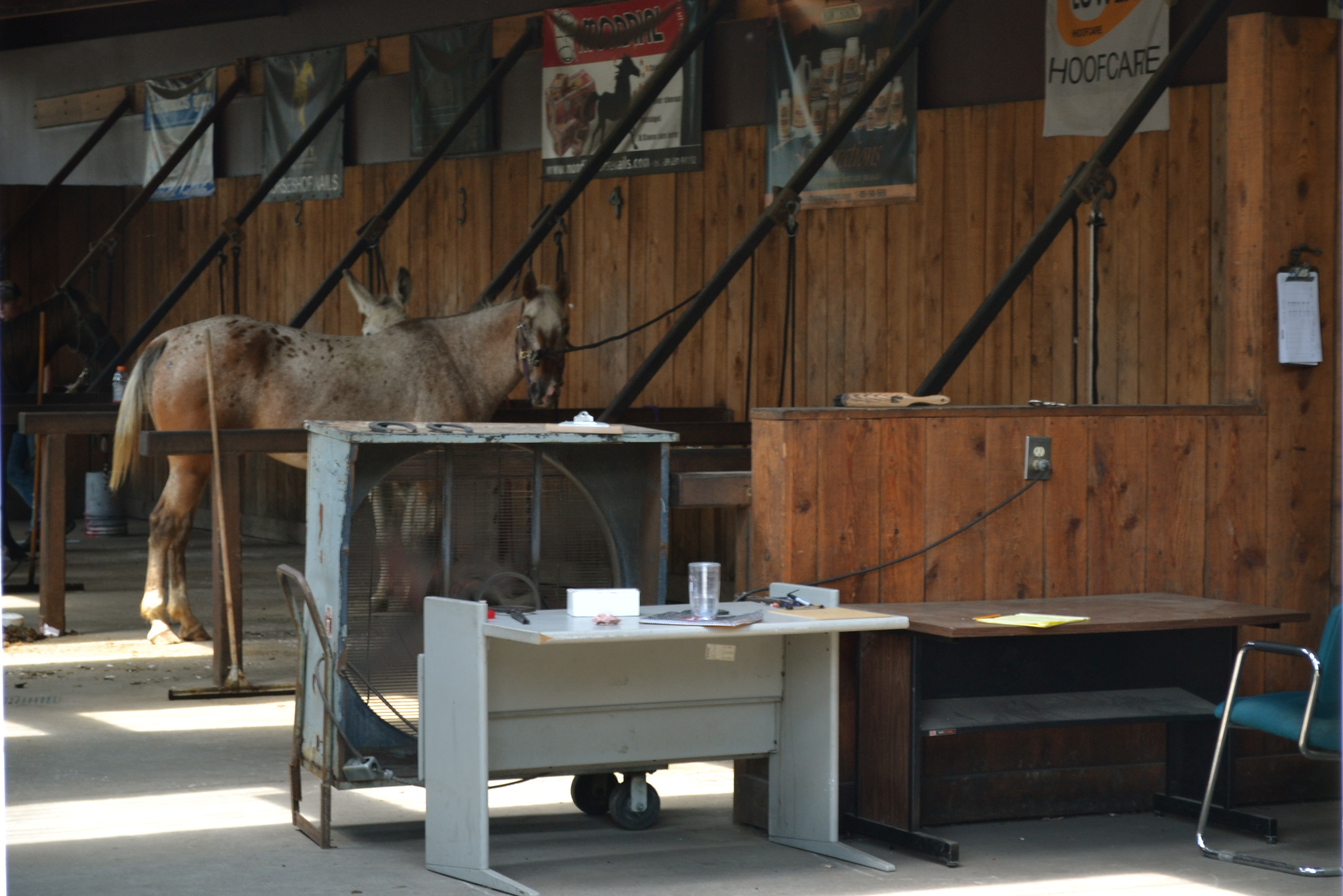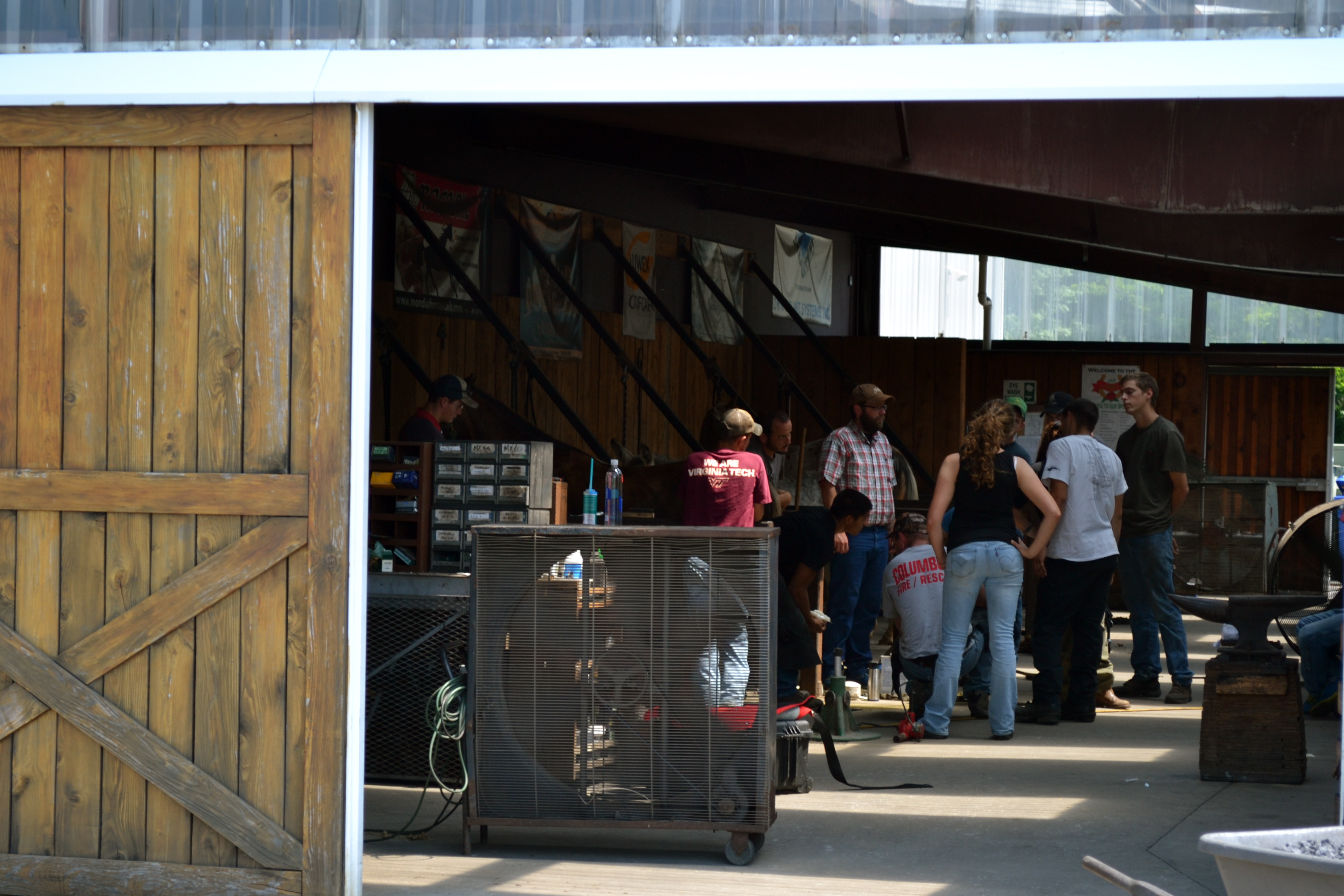Before coming to Kentucky, Anthony Casso was a young man working hard at the Belmont Park to support his family. Through his diligent labor, he gained the respect of a racetrack veterinarian. The vet noticed Anthony’s love of horses and his interest in farriery.
One day, this vet asked him why he didn’t go to school to become a farrier. The reason was money. Anthony could not afford to go to school when his mom and his brother depended on his help. With confidence in the young man’s ability, that veterinarian paid for Anthony’s entire school year. Now a student of the Kentucky Horseshoeing School (KHS), Anthony is working with a top racetrack farrier — Steve Norman.
Continuing to work hard, he is preparing to go back and work with his veterinarian friend in New York. While some people like Anthony receive scholarships, gifts or help from someone who believes in their ability, others are not so fortunate.
The reasons potential students give for not attending KHS tend to be finance related. While KHS offers assistance, the financial aid options have been limited and impractical for many of the students applying. The options will not be limited for long. Since its opening, the school has strived to offer its students a competitive opportunity to learn farriery and has always looked for ways to better its students’ experience and to help those who truly want to shoe horses. One of the newest ways through which to better the experience influences the financial aspect of attendance. The KHS has undergone the process of becoming Title-IV funded and is looking forward to expanding financial aid options by offering federal financial aid.

KHS started the process by achieving national accreditation, which was achieved in October of last year and made the school the only nationally accredited freestanding horseshoeing school in the United States.
“We are the only nationally accredited horseshoeing school, freestanding in the country,” said Joe Police, director of KHS. A challenge that took over 40 months, Police acknowledges that it was a struggle. With a sigh and shake of his head, he admitted, “It took us 40 months — unbelievable — but we got it.” Graduating students now receive recognized accreditation, giving them a more competitive edge.
While the cost has not increased and the standard of instruction is still high, the value has increased. With the national accreditation achieved, the school went ahead with the process of becoming Title-IV funded. It is a long process, which began in February 2014 and is not expected to be completed in less than a year. “We have applied to the federal government,” explained Police. “We did our financial audit. I went to school for a week. Sara [Taylor, KHS co-owner] went to school for a week. We got all the prelims out of the way. Now we are waiting for the federal government to say ‘yes’ or ‘no’.”

Board members and school staff say there is no reason to think it will not be approved. Previous students also are in favor of this move. James Guthrie, a farrier in Kentucky, completed the 24-week program in 2011 and is pleased to hear of the future plans. “The Kentucky Horseshoeing School is considered one of the top five in the country for the profession,” said Guthrie. “It is good to see them trying to raise the bar, getting accredited and funded.”
Although it may take up to a year to receive approval, they are willing to face the wait, as they believe it has great benefit to students. The cost for the 36-week program, including tuition, tools and housing, can be over $28,000. The federal aid given through Title-IV accreditation would help students, who want to be horseshoers and cannot afford it, float their education. “It will open the floodgates of our school,” said Police.
The school wants students to have feasible means for attending and is willing to help any way possible. “It will help students that want to be horseshoers that can’t afford to come to school,” said Police. Being Title-IV funded will allow the school to offer more practicable loans and financial aid to these students.
Currently loans received at KHS require a cosigner and require repayment to start 30 days after enrollment. Federal aid money will offer more latitude in repayment options. As the school sees a 100% placement rate of the 85% of students who graduate, there is confidence in students’ ability to repay loans.
KHS has offered other options for financial assistance including assistance provided through private student loans, the Workforce Investment Act, the Veterans GI Bill and prepayment. The financial aid office assists students in finding aid wherever available. Guthrie recalls that at the time he attended, the school offered a small discount if the student paid tuition before classes began. He took advantage of the discount by saving the tuition funds before attending. He knew other students at the time who chose to put their tuition on credit cards and risk the incurring credit card debt along with its high interest. Starting a farrier business, like any new business, is difficult and going into a new career field with debt is never easy. With the availability of grants and subsidized loans, the KHS financial aid office hopes to make the financial burden as light as possible.

Once Title-IV is approved, there are future plans, which also will help with cost related issues. One of these future plans includes expanding with distance learning. As the only horseshoeing school in the country with a curriculum, the school is looking to create an academic portion available online. With little adjustment to the program, these distance learners could then come to campus to complete a practical hands-on portion. By allowing students the flexibility of studying elsewhere, an online portion could significantly lower the overall cost of certification.
KHS would like to do more for those around it as well, but finances limit what the school is able to do. “We want to do a lot more community outreach,” said Police “Title-IV is our next big thing. Once we get that wrapped up, once we get that flowing, that will allow us a little breathing room to kind of think about other projects. [Title-IV] is a key goal right now.”
The school is growing and growing with the advice and council of reputable sources. With board members from various areas of the education field, KHS made the decision to be directed by educators and those familiar with business. These board members believe that becoming Title-IV funded and offering federal financial aid will help KHS continue to grow and strengthen its program.
With business experience and a healthy dose of common sense, Annie Bilderback had already been assisting the school before joining the board last year. “I really think it would be great that students attending equine college, and pre-vet students be allowed to have credit for attending KHS,” said Bilderback. Both Annie Bilderback and her husband Dr. Marty Bilderback, DVM and Associate Professor at Asbury University, sit on the board and are great promoters of KHS. “The school will be accredited and the goal is to make it where a student can achieve higher learning and reward the achievements of podiatry,” said Bilderback.
Always looking for ways to enhance its students’ experiences and assist students who truly want to shoe horses, the Kentucky Horseshoeing School looks forward to the floodgate that will open for the school, especially for its students, once the school is Title-IV funded.






